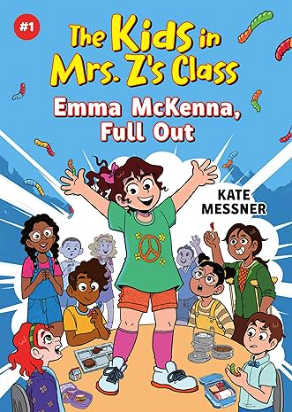I cross-posted this at Verla’s…but just in case I don’t run into you there…
What are your favorite revision strategies that teachers might also encourage students to use when revising writing in a classroom setting?
Reading out loud? Post-it notes? Critique partners? Bring it on!
I’m giving a presentation on revision at the New York State English Council Conference in NYC this November. It’s called “Walking the Walk: How Teacher-Writers Can Encourage Student Revision.” As part of that presentation, I’ll be talking about how teachers can use the concept of “mentor authors” in their classrooms. (This doesn’t involve you interacting directly with students; it simply means that teachers use excerpts from your work to talk about and model specific writing skills & strategies.)
My hope is to put together a PowerPoint presentation that teachers can use in their classrooms to share some of YOUR favorite revision strategies with their students. Sometimes, a revision suggestion coming from a favorite author has more clout with kids than a suggestion that comes from a teacher. I’m going to share the presentation at the workshop and make it available for download on my website so teachers can access it to use in their classrooms.
Are you game to be featured as a mentor author? If so, please respond to this post and tell me about one specific revision strategy you like to use. Let me know what it is and if it’s a general strategy or one that’s specifically useful for novels, non-fiction, poetry, picture books, magazine articles, etc. I’ll choose a good selection of these to use in the presentation. I’ll include your advice to students, along with a link to your website, your picture, and a picture of your books if you’re published, in the multimedia presentation. (To keep things simple, I’ll grab these from your website unless you object.) This is a general session at NYSEC, so authors for all ages, from PB to YA are welcome!
If you respond to this post, I’ll assume it’s okay for me to feature you in the presentation unless you tell me otherwise. It’s a great way for you to provide help to young writers and to make teachers & kids more aware of your work. Thanks!





This might be too obvious to be of any use, but the most important strategy for me is to allow some time to pass so I can really see what I’ve written, as opposed to what I though I had written. I try ot let novels sit for at least a month between drafts, and I like to give short stories at least a week or two. I realize that teachers can’t do this with every assignment, but there’s no reason they can’t do it once or twice a year. If teachers have students write a story or essay, and then put it away for a month or two, the students will see for themselves the value of distance when they revisit what they’ve written. After all, “revise” means “see again.” You can’t take a second look at something unless you first look away.
You can check this out, if you want
I have a fun way for kids to tackle revisions. It’s listed on my site at the end of a Presentation called Write Away.http://www.nancyviau.com/schoolvisits.html, and involves forming mock critique groups using the whole class. Depending on the age, you can pull some great details from each of the three groups. And I like the idea of how they work together to help each other.
Sometimes I take a scene that is not going well, and I write it in an alternative point of view, to try to get closer, emotionally, to my character. So I might switch from third person to first person, or I might try getting another character’s take on the action. For example, writing in the villain’s voice can make motivation clear. Then you can switch back, if you need to, but you have learned something important.
Here’s a post on how to critique rhyming poetry, which works well in assessing the poem for revision as well: http://kellyrfineman.livejournal.com/109089.html
You are free to use it or not, as the spirit moves you.
This is something that we do as writers, but I think it’s sometimes forgotten in schools, so it’s great advice for teachers. Thanks!
Re: You can check this out, if you want
Great – thanks, Nancy! And if you like, I’ll include a link to this part of your website in my presentation.
Great strategy – and one that I think lots of kids will enjoy. Thanks!
This is great, Kelly – especially since I don’t have much on poetry. I’ll use it and credit you. Thanks!
Re: Link to my site
I would LOVE that, of course!! Thanks!
Not sure if you would be able to us this, but I color code everything when I do my revisions.
I make an extra copy, whether in Word on the computer, or printed out, and color code in my critique comments. For example, red is usually for action, green for descriptions, blue for emotions and so on. I find it easier to put the comments right into the story – that way when I go back through during the revision process I can immediately see what’s needed where.